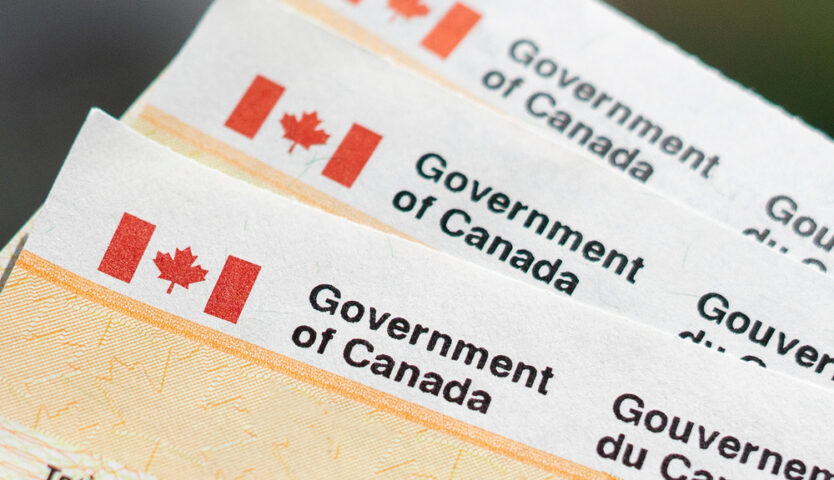The COVID-19 pandemic took the world by storm and placed many businesses, especially small ones, in a precarious position of losing revenue and long-term closures. Luckily, in Canada, the government stepped in and offered the CEWS in order to help businesses keep their heads above water.
Now that these relief programs are in full swing, many individuals and business owners are wondering how this benefit money is going to affect their 2020 income tax return. The simple answer for business owners is: The CEWS is taxable income. When it comes to filing time, this money will be included in your business’ income. However, there is more to claiming the CEWS than simply including it in your taxes.
Read on to learn what the CEWS is, how it will affect your return and what to do if your business is audited in relation to this wage subsidy:
What is the CEWS?
In order to help businesses during the COVID-19 shutdown in 2020, the Canadian government offered the Canadian Emergency Wage Subsidy (CEWS) to help cover part of their employee’s wages due to drops in business revenue.
The subsidy was designed to help employers re-hire workers, prevent further job loss and ease their business back into normal operations.
The CEWS was available to taxable corporations such as individuals, non-profits, registered charities and other eligible entities and was provided over a 12 week period, divided into three qualifying periods.
Is the CEWS Taxable?
The CEWS, as a wage subsidy, is considered to be government assistance and therefore must be included in the employer’s taxable income.
The amount of CEWS received by an employer for a qualifying period will be included in the employer’s income.
Employers will be entitled to a deduction for the amount of remuneration paid to employees but the amount of CEWS received will reduce any remuneration expenses eligible for tax credits calculated on the same remuneration.
Eligible remuneration for the CEWS includes salary, wages, fees, commissions and other remuneration such as taxable benefits – basically, anything subject to income tax withholdings.
However, this excludes retiring allowances and stock option benefits.
Claiming the CEWS on Your Income Tax Return
When it comes to the wage subsidy, there are no special withholding requirements on behalf of the employer.
All amounts paid to employees through the CEWS are considered regular employment income that is subject to regular withholdings such as income tax, CPP (Canada Pension Plan) contributions and Employment Insurance Premiums.
To accommodate for government relief programs during the COVID-19 pandemic, the Canada Revenue Agency (CRA) has published new T4 reporting requirements for the 2020 tax year.
The CRA will be using a new code system to identify employment income made to eligible employees during particular CEWS periods.
Therefore, employers will be required to provide additional information in order to help the CRA validate payments under the CEWS, CERB (Canada Emergency Wage Subsidy) and the CESB (Canada Emergency Student Benefit).
This information, in addition to reporting regular employment income in Box 14/Code 71, employers will need to use these new codes in the “Other Information” section at the bottom of the T4 slip according to the period in which they apply:
- T4 Code 57 – Periods 1 and 2 – March 15 to May 9, 2020
- T4 Code 58 – Periods 3 and 4 – May 10 to July 4, 2020
- T4 Code 59 – Periods 5 and 6 – July 5 to August 29, 2020
- T4 Code 60 – Period 7 – August 30 to September 26, 2020
The CRA may release new codes to cover the additional periods in the extended CEWS program.
These new T4 requirements apply to all employers, not just those who collected the CEWS.
When it comes time to prepare your 2020 taxes for your business, Liu & Associates will be available to help you navigate this new filing process.
Preparing for a CEWS Audit
Beginning in September of 2020, the CRA began issuing audit request letters to businesses who had been claiming the CEWS.
Their intent with these audits was to identify the types and levels of non-compliance in preparation for larger-scale audits.
When performing a CEWS audit, the government is looking to make sure the relief benefits went to companies that were eligible for them.
These “mini-audits” required that companies provide the government with pertinent information within a timeline of 10 days.
While larger-scale audits may end up operating differently, it is worth it for you (and your business) to always have the following information ready and available:
- Documents from the employer’s minute books (i.e., anything related to the CEWS claim).
- 2019 tax information (revenues, general ledger, revenue journal entries).
- 2020 tax information (same as above)
- Information used to compute the CEWS revenue decline percentages.
- General payroll information (source deductions, contracts, proofs of payment, etc.).
- Information related to other subsidies/government programs (i.e., Temporary Wage Subsidy).
- A signed copy of the CEWS Attestation Form.
- Documents that support any exceptions or elections utilized for CEWS.
- Remuneration exclusions.
- Qualifying revenue exclusions.
These requirements can be complex and extensive and failure to provide full compliance can result in a “gross negligence penalty” – which can be up to 50% of the difference between the amount of CEWS claimed and the amount of CEWS entitled.
If your business does receive an audit letter in relation to the CEWS, it is highly recommended that you consult an expert accountant to help you identify and organize CEWS calculations, claims and filing processes.
To get more information on how to handle a CEWS audit, please contact our expert accountants at Liu & Associates.
Don’t Leave Anything to Chance
While the CEWS was a life-saver for many businesses, it is certainly going to cause some challenges and confusion at tax time.
Don’t leave the health of your business to chance! It is recommended that you consult with a tax expert to ensure that your taxes, especially in relation to employee remuneration, are filled out properly and accurately.
Feel free to contact Liu & Associates with any questions you may have!



